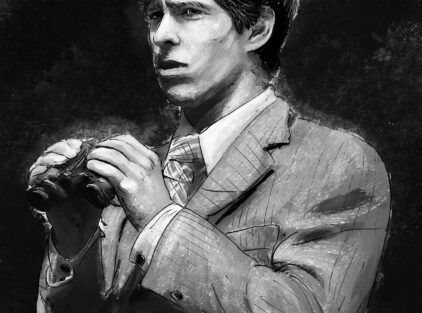By Maria Mylona
When we experience the loss of someone close to us we feel survivor’s guilt and ask ourselves “why wasn’t it me”, “what could I have done to save that person?”. This guilt prevents us from doing things we love so that we are deprived of the feeling of joy. Such a natural reaction! But grief is not just about those who have passed away. We also grieve for people who are close to us but there may have been a separation or divorce, the ending of a friendship, the removal of someone close to us, a change in health or even dementia in an elderly person. In these circumstances there are common thoughts such as I am depressed, anxious, I can’t cope, it will never pass, I will never experience joy again. Usually these predictions end up being wrong. We cannot predict our emotional future. But if we don’t allow ourselves to do something that will make us happy, we end up with a self-fulfilling prophecy. To date there have been two theories of the outcome, such as leaving with post-traumatic stress disorder (PTSD) or depression, which makes it difficult to function or driving you back to where you were before the event. There is now a third reaction, where people accelerate their forward shift and grow through the difficulties they are experiencing.
We could describe our life as a puzzle. All the pieces are in place and suddenly something happens and the puzzle falls and falls apart. It takes time to manage to put each piece back in its rightful place, perhaps forming a new pattern. The awareness of our mortality raises questions about what it is that gives value to our lives. Many choose to create something meaningful to give meaning to their pain by helping other people who have experienced a similar difficulty or loss. Some continue to help in the name of the one who has passed on through a scholarship or donation, extending their life and adding to the legacy of their name. When we decide to approach suffering together, when we decide not to hide, our lives expand. As in the case of a terminal illness, it’s not always a battle, or if it is, it may be a different battle than we thought. Our purpose is not to fight the fatality, but to help each other through this experience.
Not as soldiers, but spiritually, as pastors. That’s how we turn an experience into a good one, even if it’s not. It seems helpful to replace the words “always/never” with the words “sometimes/recently”. To be human is to accept suffering problems. Being alive means much more than being alive. Allowing ourselves to enjoy little cherished things will take back our joy. Happiness, after all, is the frequency of positive experiences, not the breadth of experience. Every night write down three moments of joy. No matter how small, they can transform your entire day, and if you feel like you’re emotionally hitting a wall… remember that walls are there so we can lean on them and rest.
Maria Mylonas is a Psychologist and a professor of psychology. She is a Synthetic Psychotherapist. She is trained in Positive Psychology by Stanford University. She holds an MSc in Health Psychology from the University of Surrey and a BSc in Evolutionary Psychology from Empire College, State University of New York. She is also certified in the application of Psychometric Testing by the University of Cambridge.
E-mail: contact@mariamylona.gr












